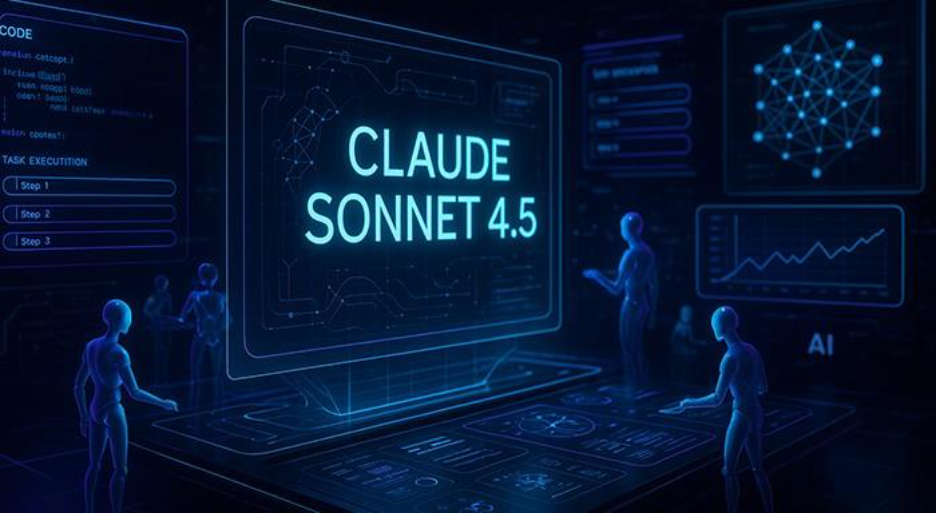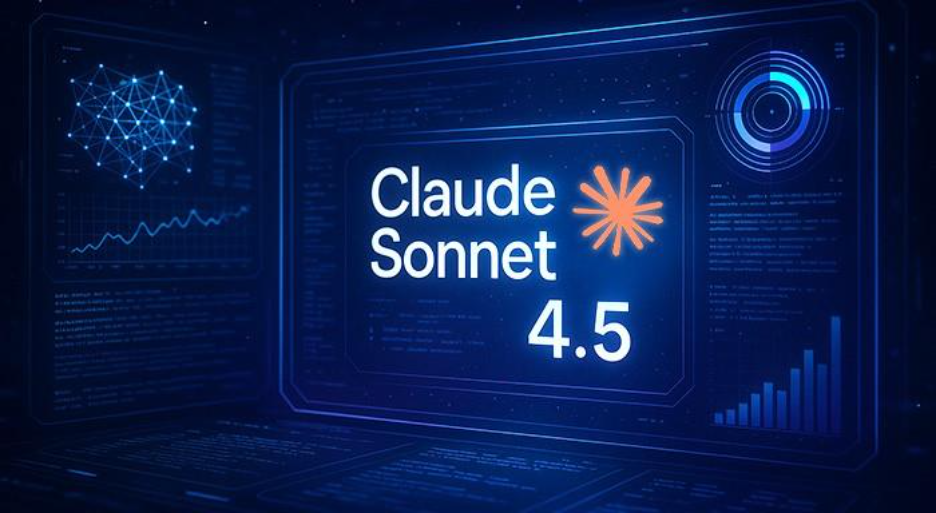Big update in the AI world! On September 29, 2025, Anthropic officially launched their most significant AI model: Claude Sonnet 4.5 of the quarter. More than a technology update, this model is designed to challenge Google and Open AI models with advanced reasoning and best coding Capabilities. The model comes up with notable improvements in reasoning, math, and coding domain than its predecessor models, like Claude Sonnet 3.7 to Claude Opus 4.1. Additionally, the model is also good in compatibility with different platforms, long-running autonomous tasks, and fast, accurate response creation feature.
Anthropic claims that “Claude Sonnet 4.5 emerged as one of the best coding models in the world,” grabbing the attention of developers seeking optimal performance and multitask execution.
With a strong coding benchmark, seamless platform integration (like Amazon Bedrock), and prolonged automated operations, it has become a strong contender in the race of AI models. This blog combines all necessary information about this update, including the latest benchmarks, practical use cases, new pricing plans, and potential competitive benefits.
What is Sonnet 4.5, and What Makes it Different?

Claude 4.5 is the latest AI model in Anthropic’s Claude 4 family, considered the best coding model in the world. The model is introduced with cutting-edge performance, advanced coding capabilities, and enhanced security measures. This is basically an enhanced version of their smartest model, Claude Sonnet 3.7, with key improvements in speed, reliability, and functionality.
With plenty of AI models claiming to be expert among all, what sets Sonnet 4.5 apart as revolutionary? The company said it’s not just another chatbot tool; rather, it’s a real-time collaborator offering prompt execution, greater autonomy, and precise results. This enables models to build complex agents, efficiently operate in real-world workflows, and execute multi-step tasks.
Key Takeaways
- Anthropic launched Claude Sonnet 4.5 on Sep 29, 2025, and it is now publicly available through the Claude API and Anthropic’s official website with the same pricing plans.
- With a significant benchmark on coding, automation, and tool interfacing, the platform becomes the go-to choice for computer use and developer needs.
- The model has gained a gold standard in accuracy of 77.2% on SWE-Bench Verified, marking a significant leap among standard AI models in practical coding scenarios.
- David Harshey, an AI researcher at Anthropic, evaluates that traditional tests are not sufficient to measure the strength of the Sonnet 4.5 model.
- Early testing and reports indicated that this upgraded model could execute sustainable, complex, multi-step tasks for up to 30 hours compared to the 7-hour limit of Claude Opus 4.
Key Application Areas
Industry insights and practical use cases have identified three main areas where the Claude Sonnet 4.5 model stands out:
Complex Agent Creation
The model has the ability to plan, execute, and iterate on prolonged multi-step workflows efficiently, making it the perfect solution for building modern automation systems and complex agents.
Computer Use
Sonnet 4.5 is advanced in using computers, like clicking, typing, and moving interface, automating real-world tasks more practically.
Advanced Niche Applications
From cybersecurity to finance and legal department has seen impressive, quantifiable results from Claude models. With Sonnet 4.5, the organizations are expected to see a 40% improvement in performance, security, and productivity.
Pricing Structure of Claude Sonnet 4.5
Sonnet 4.5 pricing model follows the same pricing plans as its predecessors, which includes $3 per million input tokens and $15 per million output tokens. When comparing, it’s more than the GPT-5 pricing and significantly lower than the Claude Opus 4. The pricing is ideal and worth considering for advanced features, like sustained functioning, complex reasoning, and cutting-edge coding support.
Conclusion
Claude Sonnet 4.5 is positioned as a practical, advanced AI model in today’s ever-evolving landscape of AI with advanced features. This includes robust code generation capability, complex reasoning, multi-step functionality, and prolonged autonomous tasks. Whether you’re creating a development project, long-running agents, or orchestration framework, this advanced model is worth considering for efficient, reliable results. But success entirely depends on how efficiently you integrate, monitor, and test the platform instead of trusting benchmark alone. Give Claude Sonnet 4.5 a try to evaluate whether Anthropic’s statement: Best coding model in the world” is true or not.



